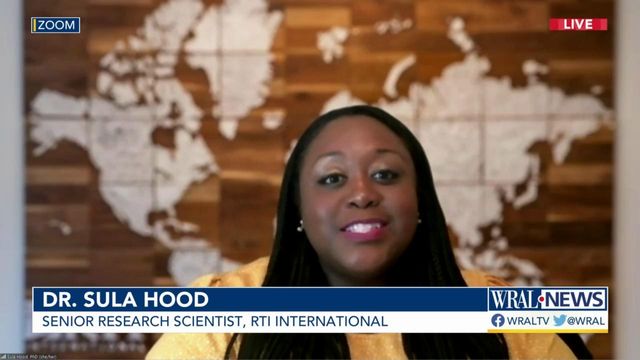NCCU and RTI International team up for environmental justice research in RTP
A ribbon cutting was held Wednesday for a new research institute dedicated to making progress in environmental justice.
Posted — UpdatedRTI International and North Carolina Central University teamed up to open the NCCU-RTI Center for Applied Research in Environmental Sciences (CARES) on RTI's campus at 3040 East Cornwallis Road in RTP.
"We are intentional with the 'All of Us' research academy about supporting HBCUs and ensuring that they have a space, and that they are included in the communities of scientists that are making these medical breakthroughs," said Dr. Sula Hood, a senior research scientist at RTI.
Researchers from RTI and NCCU will study how the environment impacts health and disease with a focus on its disproportionate impact on underserved populations.
"We're going to have an opportunity to learn about the ways in which health issues affect people from different backgrounds ... this will be a new contribution for science," said Hood.
Examples of environmental injustice include not having access to healthy food and air and water pollution.
"[This is] really affording them to be a part of the space of scientists that are doing medical breakthroughs by analyzing this data," said Hood.
"One of the things that I'm very passionate about and excited about is the fact that HBCUs instill a sense of belonging, and that we are really going along with that thread of belonging-ness," she said.
According to a statement about the new CARES research center, leaders want to "drive environmental justice research toward a world where all people are protected from harmful environmental exposures regardless of their race, color, national origin or income, and where all individuals have an equal chance at healthy living."
RTI and NCCU began working together in 2019 to build on their scientific research with a goal of developing the next generation of scientists who will work toward environmental justice.
"We really want to make sure that HBCU researchers know that they have a space that they belong and that they are a part of the community of scientists that are making these important medical breakthroughs," said Hood.
Related Topics
• Credits
Copyright 2024 by Capitol Broadcasting Company. All rights reserved. This material may not be published, broadcast, rewritten or redistributed.




